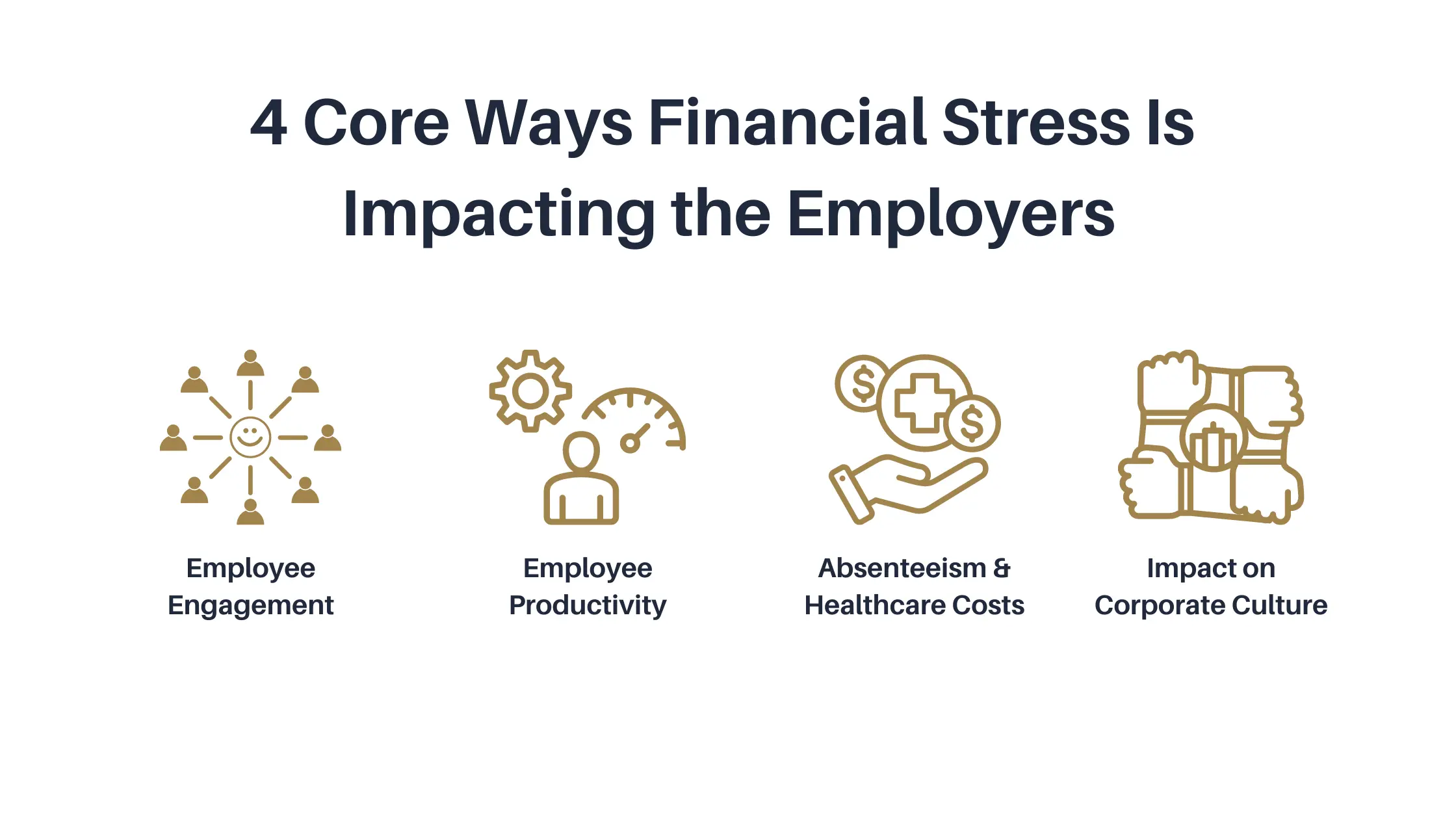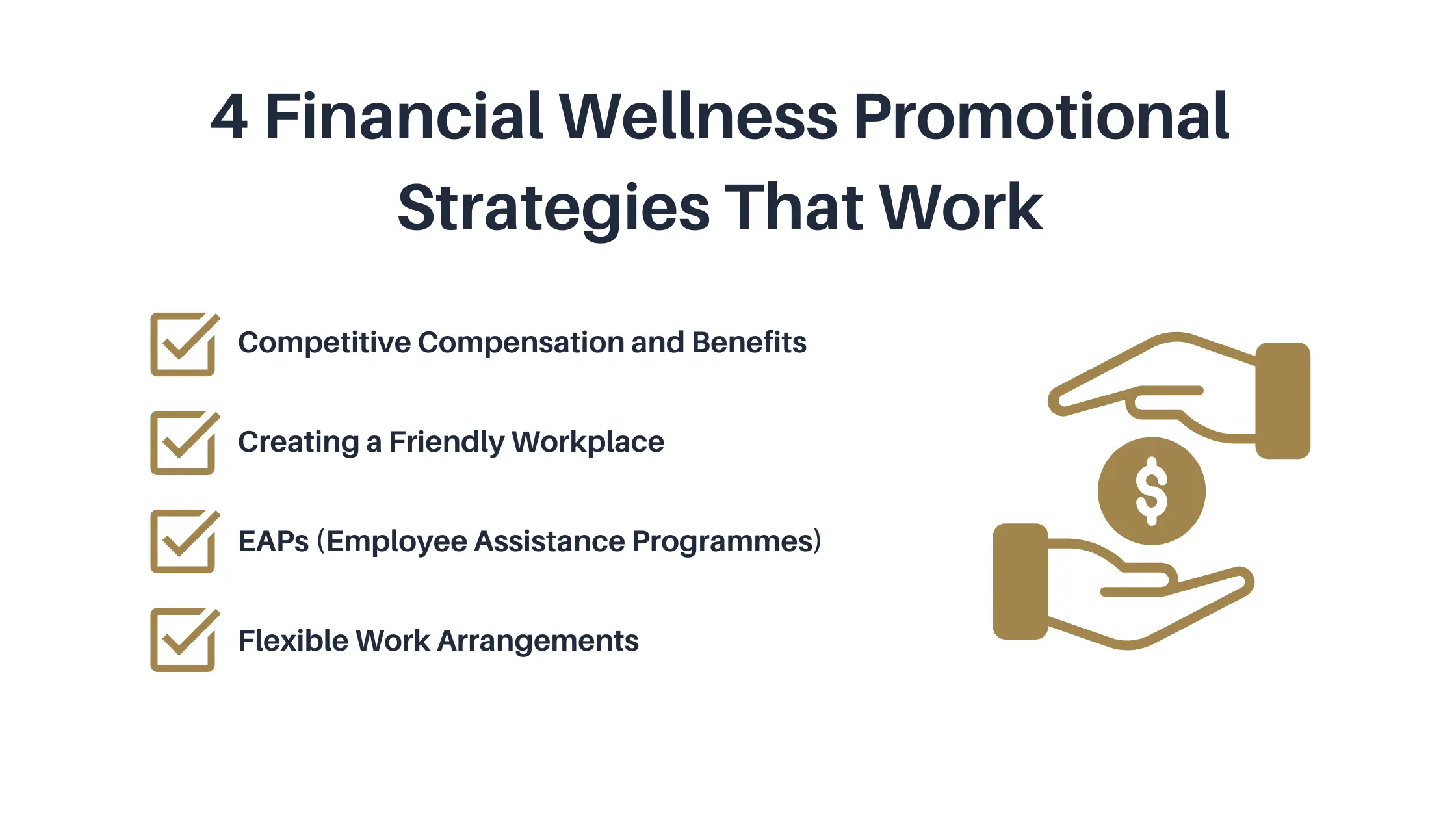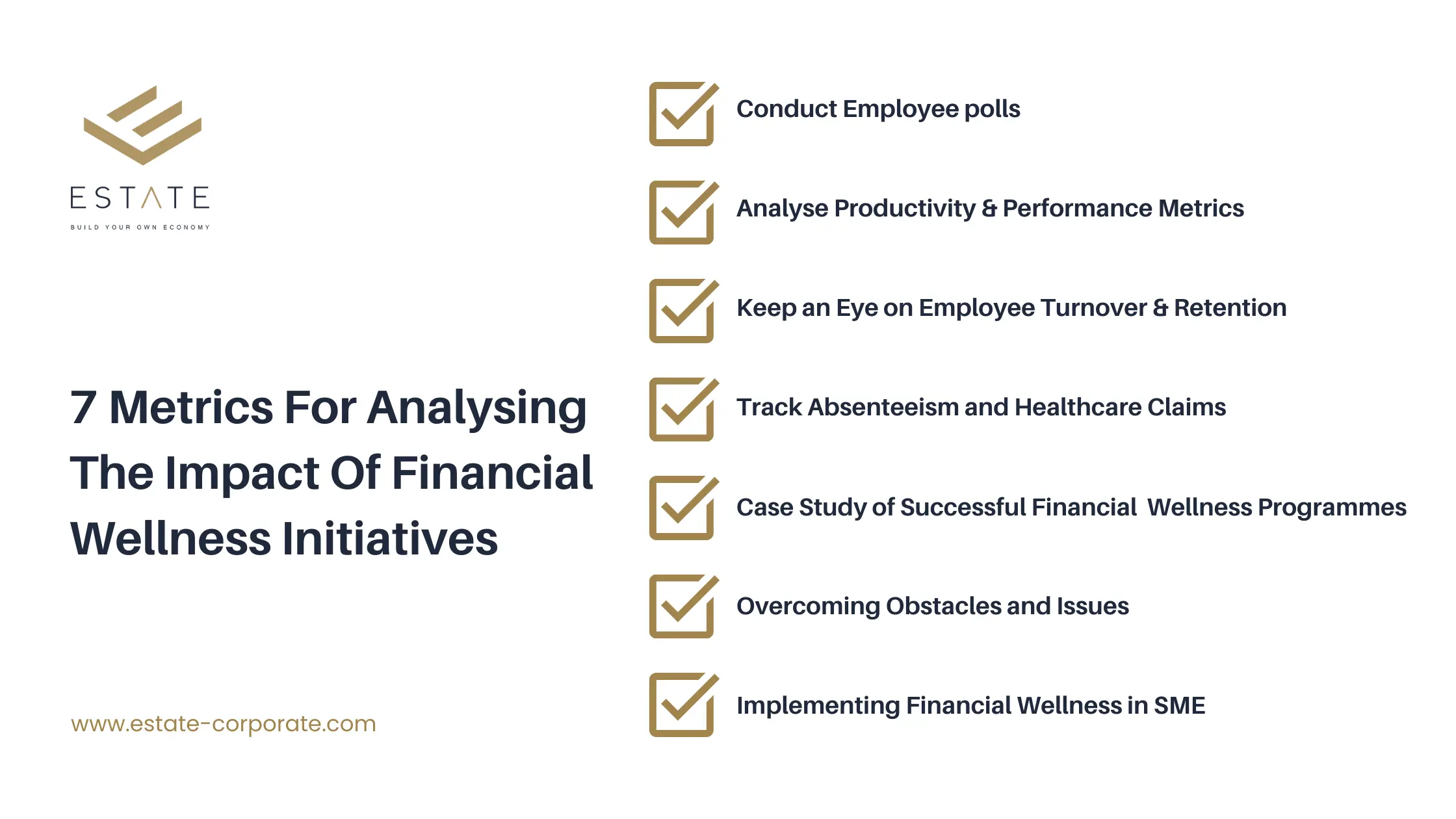It’s high time to have financial wellness in the workplace – why?
Financial stress has become a major problem for employees in today’s fast-paced and ever-changing world. Inflation is rising across all countries, along with the cost of living. Employees are increasingly concerned about how the same salary that once supported their entire family a decade ago can continue to meet their current needs.
At such times, promoting financial wellness is the only thing to help employees get a grip on their secured future. A survey by Gitnux said that stressed employees are five times more likely to get distracted at work, and suffer from burnout.
Another survey from myshortlister.com reveals that 57% of employees are not financially well due to various professional and personal reasons. And 32% out of 44% of employees feel confident with their financial future.
We all know that a stable financial state leads to higher job satisfaction, increased productivity, and lower turnover rates. So this leads us to one conclusion that promoting financial well-being in the workplace benefits both individuals and employers.
In this blog, we’ll delve into the ways of promoting financial wellness in the workplace so that employees can achieve greater financial stability and peace of mind.
Biggest Financial Challenge For Employees
Most employees come with tight financial situations, such as debt, insufficient savings, and a lack of retirement planning. These are the core issues that can increase stress and could lead to a negative impact on their general well-being.
We call it a lack of proper financial education, and it is proving lethal to organisations across Australia. But if we take a closer look at our employees, then one of the primary sources of their anxiety and depression is their unstable financial situation.
Such issues can impair focus, productivity, and teamwork, resulting in a drop in overall workplace morale. Financial education can help to solve these issues. You can read our blog to find out why financial education is important for employees.
4 Core Ways Financial Stress Is Impacting the Employers

Financial stress is one of the critical factors for increasing employee turnover rates. Financial stress is the silent killer of employee wellbeing. We have all known someone from our family or network who went through a tough time due to their financial conditions.
A study on ‘quiet quitting’ and the job market says that employees who are financially unstable and unhappy about their work culture in their current profile are more likely to seek better possibilities elsewhere, resulting in higher turnover rates and higher recruitment expenses for businesses.
Well! This was just about the turnover rates, but the issue is causing a much deeper cut to our workplace than it appears to be.
Let us go through this one in detail.
1. Employee Engagement
A financially secure workforce is more engaged and motivated to work since they can focus on their job tasks without worrying about money. But, organisations do not always work hand-in-hand with the financial wellness of their employees, leading to dissatisfaction & frustration.
One more scenario occurs when the organisations provide financial wellness help to only some team members due to their exceptional performance. While the rest don’t get any, this could divide the team and cause extreme work environments.
2. Employee Productivity
Have you noticed that promoted or high-earning employees are more satisfied with their work than their peers? We have seen it all the time: financially secure employees are more likely to be productive, creative, and innovative, which benefits the company’s overall performance.
3. Absenteeism and Healthcare Costs
In today’s age, stress and mental health are significant reasons concerning the healthcare sector. The biggest cause of such stress is financial reasons.
So, it’s safe to say that financially stressed employees may develop health problems, resulting in greater absenteeism and higher healthcare expenses. Most people don’t seek professional help, even for their health, since the mere cost of treatment is more than their salary.
This raises a big red flag for organisations because unwell employees can’t be as productive as required. And if we are connecting the dots, these folks are majorly in the category of losing their jobs or being left out of an appropriate hike in the next appraisal cycle.
So, companies promoting financial wellness can help ease these problems and lower associated expenditures.
4. Impact on Corporate Culture
A workplace that prioritises financial wellness develops a positive corporate culture. It shows concern for its employees’ wellbeing, which leads to a boost to employer branding and attracting top talent.
Along with that, it also safeguards the upcoming company milestones. A healthy team invites focused work, which leads to satisfactory results, and elevates the company’s growth prospects.
4 Promoting Financial Wellness Strategies That Work

Thankfully, many modern organisations are joining the trend of promoting financial wellness programs due to their infinite advantages. But, since it is a new subject in the face of the market, it needs a little extra effort to make it work.
Well! As a financial wellness promoter, we have come up with core strategies that could resonate with most companies. Let us discuss what they are.
In today’s day & age, opting for financial influencers is a great way to educate your employees. Another way you could do that is by having workshops and seminars on budgeting, saving, investing, and retirement planning.
Or you could just have weekly or monthly sessions and help them get the maximum benefit from financial education programs.
1. Competitive Compensation and Benefits
According to commbank.com.au, most young people from the age group 24 to 39 are not as hell-bent on their financial future. But things are changing. As inflation is rising irrespective of the employee’s paycheck, people are getting concerned about their future as well as the present.
To channel their effort in the right direction, employers can provide competitive compensation, performance-based incentives, retirement plans, and employer-matching contributions.
We have already discussed the impact of Financial literacy education among employees. Now, it is time to practice.
2. Creating a Friendly Workplace
All this time in our white-collar corporate world, no-filter discussions have been frowned upon in the name of professionalism. But there is a very thin line between both of them. You can be frank and still stay professional.
As humans, we all need to express our hearts. So, to create a friendly work culture, organisations need to encourage frank discussions about professional and personal financial issues.
Such discussions will allow you to understand your employees better and help them access financial counselling and tools. A supportive working culture lessens the stigma associated with financial stress.
3. EAPs (Employee Assistance Programmes)
As an organisation, you can always conduct and implement EAPs that provide partnerships and debt management assistance to employees experiencing financial challenges.
There are many third-party service providers available that can help you get a sound grip on employee assistance programs across finances. Well! We are one of those who can help you with that. We call ourselves Estate.
4. Flexible Work Arrangements
If you take a closer look at the financial issue, you will find it’s not just about the money. It is often a result of the extra expense it takes to meet certain professional standards.
The most common one is reaching the office in time to maintain discipline and order. But, if you could just remove this one thing and provide employees with flexible work options such as remote work or flexible hours, you would also be assisting their finances.
7 Metrics For Analysing The Impact Of Financial Wellness Initiatives

So far, we have discussed the issues and the advantages owing to the employee’s finances and their relation to their productivity. Now, let us take one more step and understand its impact in detail.
Employers can use the following methods to assess the effectiveness of financial wellness programs-
1. Conduct Employee polls
Collect input from employees via anonymous questionnaires to better understand their financial stress levels and measure the impact of established efforts.
2. Analyse Productivity and Performance Metrics
Track productivity and performance metrics before and after implementing financial wellness activities to discover any beneficial changes.
3. Keep an Eye on Employee Turnover and Retention
Keep track of turnover rates to see if financial wellness programmes have improved employee retention.
4. Track Absenteeism and Healthcare Claims
Examine absenteeism and healthcare claims data to determine the impact of financial stress on employees’ health and wellbeing.
5. Case Studies of Successful Financial Wellness Programmes
Provide instances of successful companies that have adopted comprehensive financial wellness initiatives and the beneficial outcomes they have obtained.
6. Overcoming Obstacles and Issues
Address common implementation issues such as resistance to change, variety of workforce needs, and measuring the efficacy of projects.
7. Implementing Financial Wellness in SME
Explore strategies to tailor financial wellness programs to smaller organisations’ specific needs and limitations, as well as explore collaborations with financial institutions and specialists.
Empower Your Employees’ Financial Future With Estate

In today’s dynamic and challenging business landscape, promoting financial wellness in the workplace goes far beyond being a mere benefit—it is an essential strategy for creating a robust and thriving workforce. By acknowledging the profound impact of financial stress on employees’ lives, forward-thinking companies are taking proactive steps to implement comprehensive financial wellness initiatives.
Companies can develop a healthier, more engaged, and productive staff by prioritising financial wellbeing and providing the necessary resources and assistance. Promoting financial wellness initiatives is an investment in both employee’s and the organisation’s future prosperity.
We have covered almost every aspect and promoting financial wellness across employee and employer perspectives. But choosing the right programs is also really crucial.
At Estate, we believe every employee deserves the opportunity to achieve financial stability and security. We are committed to empowering your workforce with the knowledge and tools they need to navigate their financial journey successfully.
That’s why we bring to you our knowledge and years of expertise across EAPs, financial coaching, and other financial products.
So, why wait? Invest in your employees’ financial wellbeing today with Estate, and together, let’s build a stronger and wealthier workforce for a prosperous tomorrow.